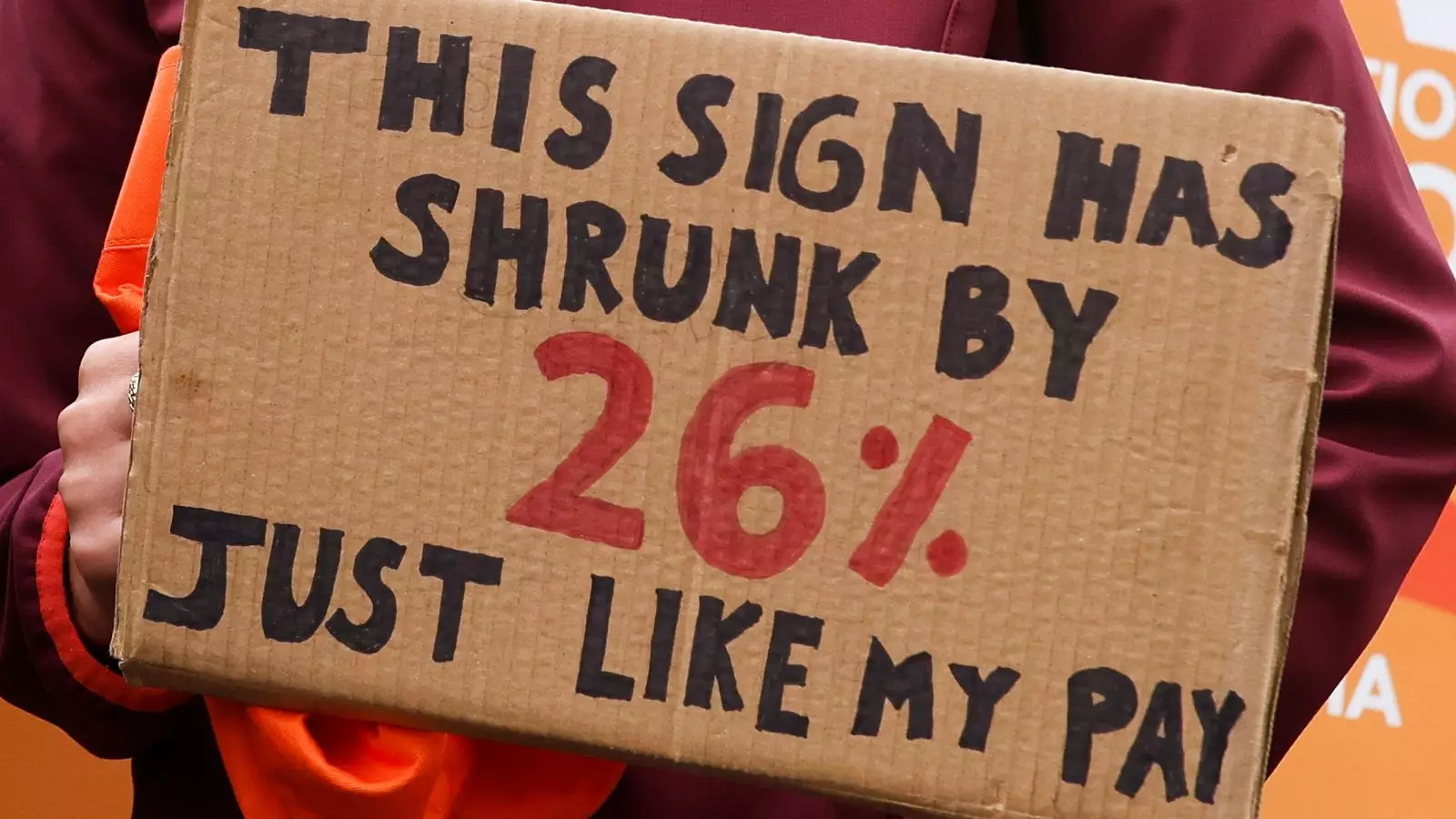Negotiations between the government and the medical unions have often felt like a recurring spectacle—a tragic dance of promises, blame, and broken trust. In recent weeks, hopes were pinned on the belief that calm heads, pragmatic negotiations, and a shared desire to preserve the NHS could forestall another disruptive strike. Yet, beneath this veneer of cooperation lies a fundamental disconnect: our health service remains trapped in a cycle of mismanagement and unfulfilled promises. The illusion that political will alone can fix systemic issues is dangerous, as it overlooks the root causes of dissatisfaction that have festered for nearly two decades.
The core of the dispute—pay and working conditions—exposes a glaring mismatch between what doctors demand and what the government claims to offer. The BMA’s call for a 26% pay restoration echoes a narrative of underpayment stretching back 17 years, framing resident doctors as underappreciated heroes. But this isn’t merely a matter of fair wages; it’s a symptom of a deeper crisis in healthcare funding and workforce morale. The government’s stance—that recent pay rises are sufficient and that further demands are unreasonable—ignores the cumulative impact of stagnant wages, increased workloads, and burnout. The political spectacle reduces this complex issue to soundbites, failing to address the systemic flaws that breed discontent.
The Politics of Public Perception and Media Narrative
One cannot ignore the influence of public sentiment, which tilts sharply against frequent strikes amid a crisis-stricken NHS. Governments and unions alike understand that public opinion exerts enormous pressure. The narrative becomes less about patient care and more about who is blameworthy. Politicians like Wes Streeting position themselves as defenders of pragmatic compromise, asserting they’re doing everything possible to avert chaos. Meanwhile, the BMA highlights years of underinvestment, framing their strike action as an unavoidable cry for justice.
This tug-of-war fuels blame-games that obscure the real challenge: systemic underfunding and the erosion of workforce sustainability. Politicians often prefer quick fixes, promoting local decision-making and short-term policy tweaks. Yet, these measures fail to confront the fact that the entire NHS model is fundamentally unsustainable without substantial investment, long-term planning, and genuine reform. Instead, the narrative fluctuates between accusations—patients’ safety is threatened, and staff are marginalized—painting a picture of a health system at war with itself.
The Myth of Decentralized Solutions
Recent attempts to shift decision-making to local trusts appear promising at first glance, emphasizing localized expertise and flexibility. The premise is that managers know their staff and patient population better than centralized authorities, thus enabling nuanced responses to the crisis. However, this approach risks significant pitfalls. It assumes that trusts will have the capacity, resources, and stability needed to implement complex triage decisions safely. It also glosses over the reality that local leaders are often caught between political pressures and resource constraints, making their autonomy limited.
Allowing local discretion may reduce immediate disruptions but ultimately sidesteps the fundamental issue—an underfunded NHS struggling with a historic backlog of unmet needs and an exhausted workforce. The danger lies in a false sense of innovation that masks the entrenched problems: workforce planning failures, chronic underfunding, and unrealistic expectations placed on staff. It’s a band-aid solution that could deepen disparities in care quality across regions rather than resolve the systemic rifts.
The Power Struggle: Who Holds the Cards?
The current stand-off exposes a bitter power struggle, with both sides entrenched in their narratives of victimhood and righteousness. The government perceives the strikes as a reckless gamble—disrupting vital care—and views union demands as unaffordable in a fragile economy. Conversely, unions see themselves as defenders of overdue rights, standing against a government that has systematically undervalued their work.
Wes Streeting’s attempts to navigate this storm reflect a central challenge: politics often prioritize short-term stability over long-term reform. His plan to decentralize decision-making is a tactical move, but it may also serve as a political shield—an effort to avoid the uncomfortable truth that real change requires more than localized discretion. It demands confrontations with the realities of healthcare funding, workforce welfare, and structural reform that have been neglected for decades.
Striking a delicate balance, the political center must resist the temptation of populist scapegoating. They need to challenge both the underfunding that has persisted for years and the union’s claims for fair pay, recognizing that neither side can win in a system that is fundamentally broken. Real progress hinges on bold, honest conversations about what the NHS can and should be in the future—conversations that are yet to be held.


Leave a Reply